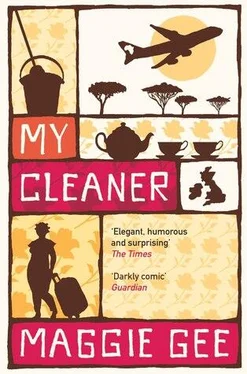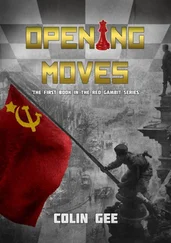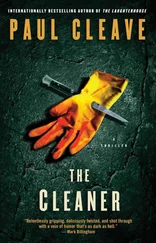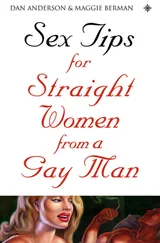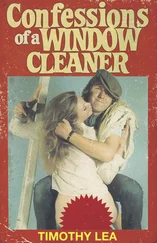Sometimes it is cheerful, when the bosses are out, and we can play music, and shimmy as we work, and make faces at ourselves as we clean the mirrors, which are sprayed with a lacy veil of toothpaste that makes us beautiful and vague as brides, beautiful as our queen, Nagginda Sylvia Luswata, before Kabaka Ronald lifted her veil. But people like the Henman will not let you play music, because it disturbs them in their important work, which is sitting reading in a bubble of silence. Yet I can read anywhere: on buses, on trains. Today I read Hemingway on the underground. I was in another world, in The Torrents of Spring . I did not shush my neighbours, or frown, or complain.
You would think they were not real, these pale fragile people. You would think they did not have mouths, or arses. Perhaps they would not know the word for it. And then you find out how real they are. No one would believe how real, how dirty.
No one wants to touch used sanitary towels. These women take them out and forget about them. They are black with old blood from the women’s bottoms. Or sometimes bright red. Like snow with roses. They smell like meat, like salt and iron. Perhaps the bloody ones do not think about this. They throw the things away into a bin in the bathroom, and later the bin is emptied by magic. I do not suppose they do it on purpose. But when I pray to Jesus, I pray against these women. I pray He will make them do their own dirty business.
Also, when you are a cleaner, everyone blames you. If anything is lost, the cleaner has moved it. If anything is broken, the cleaner has broken it. Usually of course the employer is right, but you cannot clean without breaking things. You must always say it was already broken. Or else they will take it from your wages.
It is their fault because they have too many things. In Ugandan houses, there are no things. There is nearly nothing, except cooking pots and blankets, rush mats for sitting on, perhaps a table. Ugandan houses are clean and airy. British people’s houses are full of little objects. They get dusty and dirty, they break and they fall, they fade and get old, there are more and more of them.
They interest me, though. These British houses tell a story. They are full of letters, and photographs, also. (If Miss Henman and Justin both went away, I could find out their story from the things they have collected. But because she is a writer, she never goes away, though she is very proud she went to Kampala. I wish she would go to Kampala again.)
In Kampala, only the rich have cameras. Most people have only wedding photos, which we keep in a shiny plastic book, and show to all visitors when they arrive. But Miss Henman’s house is full of photographs, perhaps a thousand, perhaps two thousand. Shiny piles of photos of her and Justin. And other faces of white strangers, too many of them to look at, or dust, or remember. And other pretty things that are not useful. And broken things she does not put in the rubbish.
It is hardest to clean when the employer is at home. Eleven years ago when I was her cleaner, Miss Henman was often working in her study, which meant she sat reading a novel all morning, or talking to her friends on the telephone. (To be fair, I did sometimes see her typing.) Whenever she was home, I could not be happy. She was always coming through to make herself some coffee, or cook herself lunch while I cleaned the kitchen.
It did not matter that I had already cleaned the cooker. It did not matter that I had wiped the surfaces. The Henman left them covered with crumbs and grease, and always tipped the last of her coffee in the sink. It sat on my clean sink like a filthy black feather from one of the greasy old karoli in Kampala. Then she left the dirty cup on the draining-board, just after I had whitened it with bleach.
And I had to hear all her advice about cleaning. The Henman is a teacher, and cannot stop teaching. “I think you might be using too much bleach. It is very bad for the environment.”
“Mary, please put all vegetable waste in the compost” (although she dropped her apple-cores all over the house, going sticky and brown in the wastepaper tins). “Mary, do please get the washing straight out, if it stays in the machine it gets horribly creased, and I know you don’t always get time to do the ironing.” (There was never enough time to do the ironing, though she left it in a tall pile on the landing, and after I started it, she would bring me more, and because I am not lazy, I did not like to leave it. So I went on ironing as I played with Justin. Once he nearly pulled the hot iron down on his head. But when I told the Henman, she only blamed me.)
She was always there, with her pale eyes staring. So I could not read her letters, or examine her drawers, which were very untidy, when I did look quickly, or try on her clothes and necklaces, or call my Omar on the telephone, or call Uganda, as other cleaners did, or watch the television with Justin, since his mother said television rotted the brain. I could not drink a cup of tea in the garden. I could not take a shower, or try on her perfume, or sip at her bottle of ‘London Gin’, which had a nice picture of berries on the label, or dry my hair with her hairdryer. You see how Miss Henman interrupted my cleaning!
I am glad my kyeyo days are over, the days of doing dirty work for nothing.
And now I am going to meet some friends from the days when I was young, and a cleaner.
Mary has begun to have a social life. Now she has recovered from the shock of arrival — the big dark house with its frozen inhabitants, her shrivelled, nervous, yellow-haired employer, the sleepy, sulky, ruined boy — now she has got started on her task as a detective, and feels she has deserved a little time off, she has used the phone numbers carefully written in the new pink notebook she bought in Garden City.
And as soon as she’s hooked up with Ugandans in London, Vanessa seems physically smaller, to Mary. The house is less oppressive, less like a prison. Justin’s state of depression, like the body of a grub very slowly burrowing away in the dark, no longer lies like a stain on her heart. She is still a Ugandan. She can be happy.
It is worth the journey to the other side of town to sing her heart out on Sunday morning with other Ugandan Anglicans who know you open your mouth when you sing. Who laugh and chatter after the service, and do not, whisper, or pretend to be humble. Mary eats muchomo on Saturday nights with friends of her elder sister’s ex-boyfriend, and the smell of roast meat is the best in the world, both salty and sweet, with burnt-sugary juices that coat the pink core in dark caramel — though they tell each other that they miss Kampala, the sprays of white stars on the blue night sky, the punters eating their pork out of doors, licking the salt off bare warm fingers. They complain, they talk loudly, they roar with laughter. They tell stories about kyeyo in London: one’s a lawyer in Kampala, but a bouncer here: the teacher washes dishes: the senior civil servant is selling kitchens on the telephone. Most of them hold down at least two jobs, and some of them are studying as well. All of them have fallen asleep on buses, as Mary once used to, years ago. All of them find London ferociously expensive, and yet they send money home, and save, and manage to go out as well. “We are Ugandans. We know how to party.” Now Mary remembers how to party.
She goes dancing in the early hours at Club Afrique in Canning Town, and although ten pounds is a lot of money, although there are too many Congolese, it is wonderful to hear Ugandan music, Ragga D, Trishlaa and Jingo Shoe, and Mary loves dancing, though when she was with Omar she only danced at home, with him. Now all the men want to dance with her, although she is a decade older than some of them. The beat is in her blood, her hips, her heels. She could dance for ever: she’s the Dancing Queen. Oh, and here is her favourite, Chameleon.
Читать дальше
